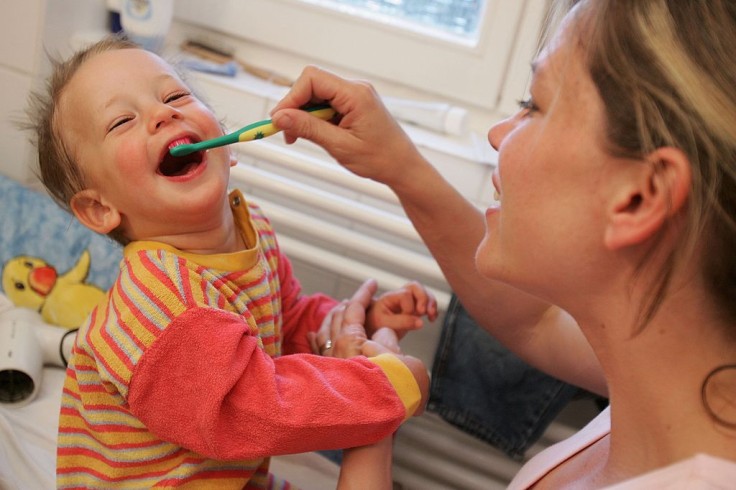
Baby's milk teeth can look so tiny and fragile that many parents and caregivers might often skip brushing them.
There are a lot of duties that we as parents have to balance, and the oral health of our children is sometimes something that we have to put on the back burner. For this reason, it is impossible to emphasize the significance of cleaning your child's milk teeth.
Milk teeth are the first teeth to appear in a child's mouth. These are more than simply placeholders for permanent teeth; they help a child's growth by assisting with speech, chewing, and paving a route for future teeth.
The hazards that are linked with not keeping regular dental hygiene for your child's milk teeth will be discussed, and we will also provide some suggestions on how to avoid these risks from occurring.
What Happens When You Don't Brush Your Child's Milk Teeth Every Day?
Cavity Risk Increased
The development of cavities is the most urgent risk of not brushing milk teeth everyday. Milk teeth have thinner enamel than adult teeth, making them more prone to decay. Cavities in milk teeth can cause discomfort, trouble chewing, and an increased risk of cavities in permanent teeth.
Infections of the Gums in Young Children
If you do not brush your child's baby teeth on a daily basis, what consequences will they face? The possibility of developing gum disease is a consequence that is not as widely acknowledged.
Children can also suffer from gum inflammation, bleeding, and, in severe cases, periodontitis, which can impact the health of their developing permanent teeth. Although this condition is more commonly associated with adults, it can also affect children.
Bad Breath and Social Implications
It is possible for poor oral hygiene to result in halitosis, which is the medical term for persistent bad breath. This can be especially upsetting for youngsters, as it can impact their ability to engage with others and their sense of self-worth.
Delays in the Developmental Process
The neglect of the health of a child's milk teeth can result in the loss of teeth at an earlier age, which can then have an effect on the development of the child's speech.
Additionally, the premature loss of teeth can result in misalignment difficulties in the permanent teeth, which may necessitate orthodontic interventions at a later stage in individuals' lives.
Systemic Health Issues
A rising body of research suggests that improper oral hygiene is linked to a wider range of health problems. It is possible for bacteria caused by dental decay that has not been treated to reach the bloodstream, potentially leading to more systemic health concerns such as heart disease, especially in young children.
Best Practices for Healthy Milk Teeth
It is critical to develop a consistent oral hygiene regimen for your child in order to avoid these risks:
Brushing: You should use a toothbrush with soft bristles and fluoride toothpaste to brush your child's baby teeth twice a day.
Diet: It is important to limit sugary snacks and beverages because they contribute to tooth decay.
Regular Dental Checkups: Visits to the dentist should be scheduled on a regular basis for your child, beginning with the eruption of the first tooth.
Making Oral Hygiene Fun
To encourage children to wash their teeth regularly, make the process itself fun.
You may make brushing your teeth an enjoyable pastime by using toothbrushes with eye-catching patterns and toothpaste with a variety of flavors. This not only instills healthy oral habits in kids, but it also increases the likelihood that they will continue to maintain these habits as they get older.
If you do not brush your child's baby teeth on a daily basis, you are putting your child at risk for consequences that go far beyond simple dental decay.
It is possible to guarantee that your child's smile is both healthy and happy by first gaining an understanding of the dangers involved and then putting into practice a thorough oral hygiene routine.
It is essential to keep in mind that the treatment you provide today will determine the future oral health of your child.
Related Article: Setting Boundaries: Create Healthy Screen-Time Schedule for School-Aged Kids